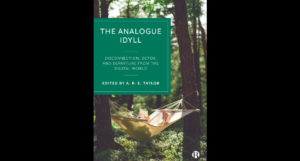New funding for ‘mini-projects’ to make fashion sustainable

A new network will offer grants of up to £100,000 for “mini-projects” to make sustainable fashion a reality.
Future Fibres Network Plus officially launches at the Design Museum in London today (Wednesday) with an event involving designers, manufacturers, small businesses and researchers.
Globally, the clothing industry generates 10 tonnes of textile waste per second, a fifth of the world’s water pollution, and more greenhouse gas emissions than aviation and shipping combined.
Future Fibres Network Plus – a collaboration between University of Exeter, Leeds University, University of the Arts London, Huddersfield and Plymouth universities – will bring environmental science into the heart of the UK fashion, clothing and textile sectors.
The network is offering £1 million in total for short-term, targeted mini-projects to encourage academic-industry collaborations.
Future Fibres is part of the UKRI Network Plus in Circular Fashion and Textiles, and the wider UKRI Circular Fashion Programme which aims to keep the UK at the forefront of the global fashion and textiles industry.
“It’s no longer good enough to design textiles and garments without thinking about what happens to them at the end of their life,” said the project’s director Professor Tamara Galloway, ecotoxicologist at the University of Exeter.
“We need to design in sustainability from the start – developing more circular, less wasteful supply chains and changing people’s perceptions and attitudes to the clothes they wear.
“The funding call for mini-projects is a practical step towards enabling a more sustainable future for the industry, and aims to fund a wide range of relevant new projects and innovations.”
Kate Goldsworthy, Professor of Circular Design and Innovation at Chelsea College of Arts, University of the Arts London, added: “Future Fibres is a ground-breaking network bringing industry and researchers from design, technology and environmental science together to work on new solutions to tackle the huge impact of the fashion and textile industry on the natural environment.
“It begins with designing materials, products and systems that consider our ecosystems from the start and importantly involving stakeholders from the entire value-chain.
“We are asking the question ‘what would we design differently if we understood the environment as our end-user?’”
Dr Rosie Hornbuckle, also from University of the Arts London, said: “The network will build a new repository and innovative resources for education, as well as engaging with policy and citizens to increase the impact of environmental science relating to fibre and textile pollution and its many devastating impacts.”
Today’s event will be chaired by BBC science journalist Victoria Gill, who will talk about the importance of storytelling – especially positive stories.
The event will include talks on how the fibres enter the environment, the impact this has on marine life, and how one company uses waste pineapple leaves to create a sustainable yarn.
The project includes a partnership with the UK Fashion and Textile Association – which represents UK retail, luxury brands as well as textile manufacturers.
Professor Galloway added: “We are really excited to be leading Future Fibres Network Plus, which will bridge the gap between industry and science.”
For more details of Future Fibres Network Plus, including how to apply for the new funding, visit: https://futurefibresnetworkplus.com/



